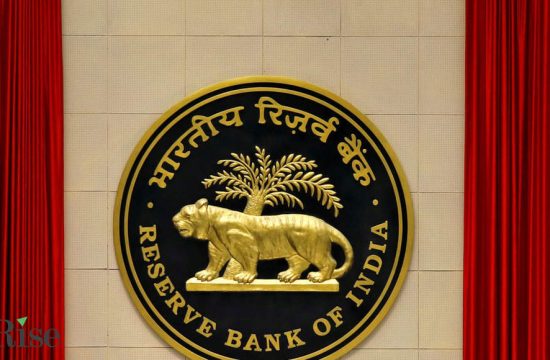
By Dr Shanker Adawal
The COVID-19 pandemic has exposed the deep vulnerabilities and inherent gaps of India’s healthcare system. The outbreak of COVID-19 posed both a challenge and opportunity for India’s healthcare startups. Despite several inherent challenges, startups promptly engaged themselves and developed solutions for COVID-19 applications in the areas of prevention, detection, disruption management, and operational efficiency and have provided innovations in medical goods and services. The involvement of startups has helped the government to reach every household during the pandemic.
By mid-March, it became apparent the pandemic has come to stay for a while and thus, efforts were made to streamline the healthcare facilities in the areas such as diagnostic kits, respiratory aids, ventilators, PPE, and other critical capabilities as traditionally India was import-dependent of these vital components.
The startup ecosystem rose to the occasion and produced high-quality products, at scale and significantly lower prices than comparable products from around the world. Except the testing kits (we had a shortage till June) and of course, the COVID vaccine, we never felt any short-fall, even till date.
A variety of solutions were provided by startups in areas like rapid diagnostics and screening, ventilator and respiratory aids, preventing the spread of the virus by need innovation, cold-storage to maintain sample integrity while transporting to COVID-testing facilities and therapeutic candidate development and screening. The startups also remained active in telemedicine, online pharmacy, artificial intelligence / data analytics, transportation, home healthcare and well-being segment.
Overall, the healthtech startups in India raised a total of $ 504 million between 2014-2018.
As of 2018, there are a total of 4,892 startups in the Indian health-tech space and the number has further gone up during the COVID-19 pandemic. Many startups have also shifted from other sub-sectors to health-care. Not only that the government has taken several initiatives to facilitate more number of start-ups. To list a few, NITI Aayog recently set up a committee to boost the government’s partnership with private companies to produce health equipment and personal protection equipment (PPE). In April 2020, it announced eight startups are working on innovative healthcare solutions to help the government deal with the situation better.
Secondly, the government’s Centre for Augmenting WAR along with COVID-19 Health Crisis (CAWACH), a unit of Department of Science & Technology has shortlisted 54 startups developing solutions to tackle the pandemic. CAWACH aims to quickly scale up responses to detect, test, treat and reduce Covid-19 transmission in India. The department filtered out 54 startups for developing indigenous, low-cost and effective solutions to contain COVID-19. Other government departments and bodies such as SIDBI have launched schemes to promote startups.
Multiple activities are being done for startups at different levels in the government system, but as observed, there was an absence of synergy. Now, the Indian healthcare startups have matured and ready to serve the country, they look to the government to formulate a national policy where adequate provisions may be made for their participation.
As a startup progresses from inception to commercialisation to scale, one of the most pertinent factors that shapes its operations and strategies is adherence to governmental regulations. Here in India, health laws and policies are localized-the startups move around the local municipal offices to state health departments for months together to obtain licence, permissions and obtain laboratory / clinical trials.
Non-availability of uniform regulatory and validation standards, leads to a huge variation in validation requirements at States and hospitals. As a result, hospitals often rely on foreign regulatory certifications such as FDA and CE, especially for riskier devices and instruments.
Due to absence of a standard national policy, the startups often face procurement challenges in both public and private procurement. The startups also face operational liquidity crunch as they spend long periods of time in the early development of their product. The process of testing the idea and working prototype, receiving certifications, performing clinical and commercial validations, and raising funds, in an unstructured environment makes the gestational period unusually long thereby limiting the operational liquidity of the start-up. There is a lack of incentives and adequate frameworks to grade and adopt innovations.
Indian startups are more vulnerable than older incumbents to the shock brought by the pandemic. They tend to engage in high-risk activities compared with other small and medium-sized firms (SMEs), face constraints in accessing traditional funding, and have a formative relationship at best with suppliers and customers. In many countries, adequate measures were taken targeting startups’ financial fragilities. These include measures such as loan guarantees, direct lending, grants or subsidies. France has set up a €4 billion fund to support startup liquidity, while Germany announced a startup aid programme, expanding and facilitating venture capital financing. In the case of India, although initiatives were taken, they have not been shaped properly to meet the challenges on ground.
The statistics indicate, till date, there is only one government bed for every 1,844 patients and one doctor for every 11,082 patients (lower than WHO standards) and the country is ranked 145 among 195 countries on the healthcare index. In order to provide affordable health care facilities to the 137 crore population, the government is to formulate a robust national health policy and focus on expanding hospital and human resources, healthcare startups can be effective to improve efficiencies, provide affordable services and bridge gaps. The engagement of the startups in the healthcare ecosystem will put the health system in a more robust position to help absorb the impact and save lives more efficiently in the event of another pandemic.
Providing easy and affordable healthcare for India’s ever-growing population is a challenge. Therefore, while formulating strategies, health rights of the people must be kept at the centre and affordability, accessibility and availability should be made the main mantra. The government may consider integrating few of its flagship programmes with health-care startups. The country has learned enough in the last six months and thus, it is critical that the right to health be supported and the health-care start-ups may be made as the key drivers to achieve affordable health-care for all. Mainstreaming of the healthcare startups in the Indian health system is certain to accelerate health system efficiency and bridge the gaps.
The COVID-19 pandemic has provided us an opportunity to improve our healthcare system. The need of the hour is to formulate a robust national health policy and promote the concept “One Nation One Policy for the Startupsâ€.
(The Author is officiating as President, Manavadhikar Samajik Manch, a New Delhi-based organisation which works in the areas of promotion and protection of human rights)










